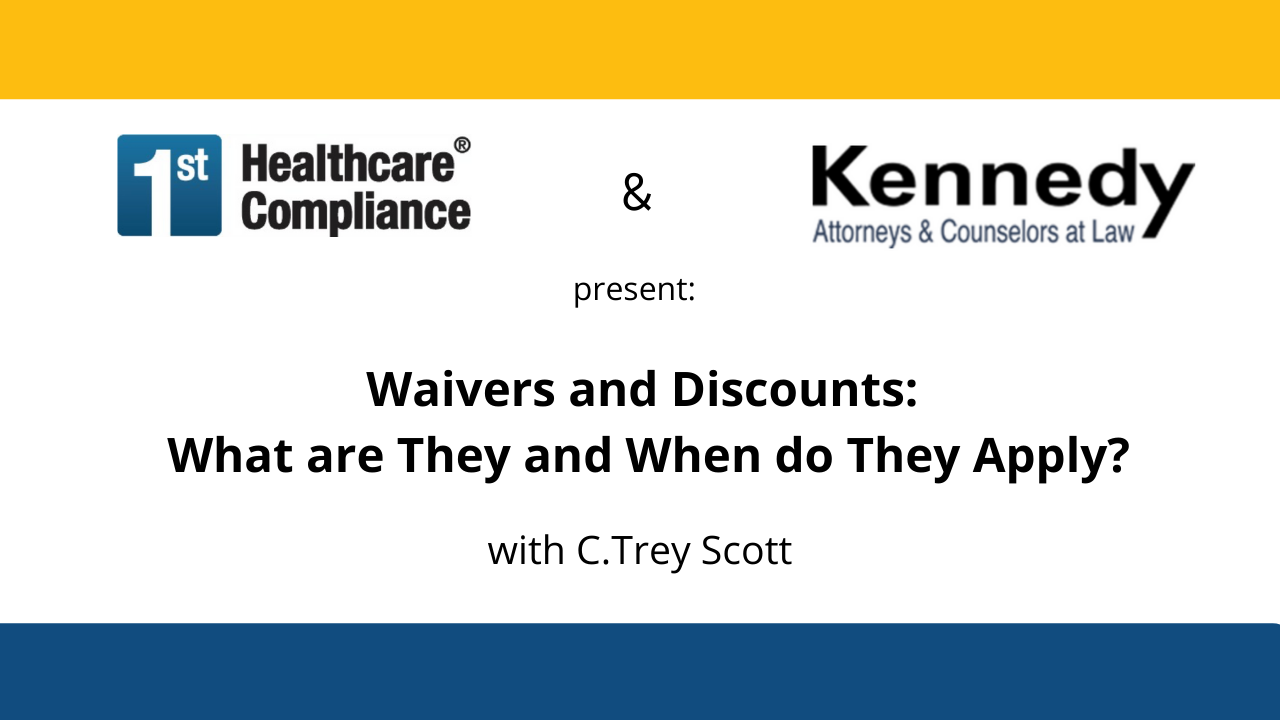
Waivers and Discounts: What are They and When do They Apply?
https://www.youtube.com/watch?v=WiOdoOdrHJg
Trey Scott, Coordinating…
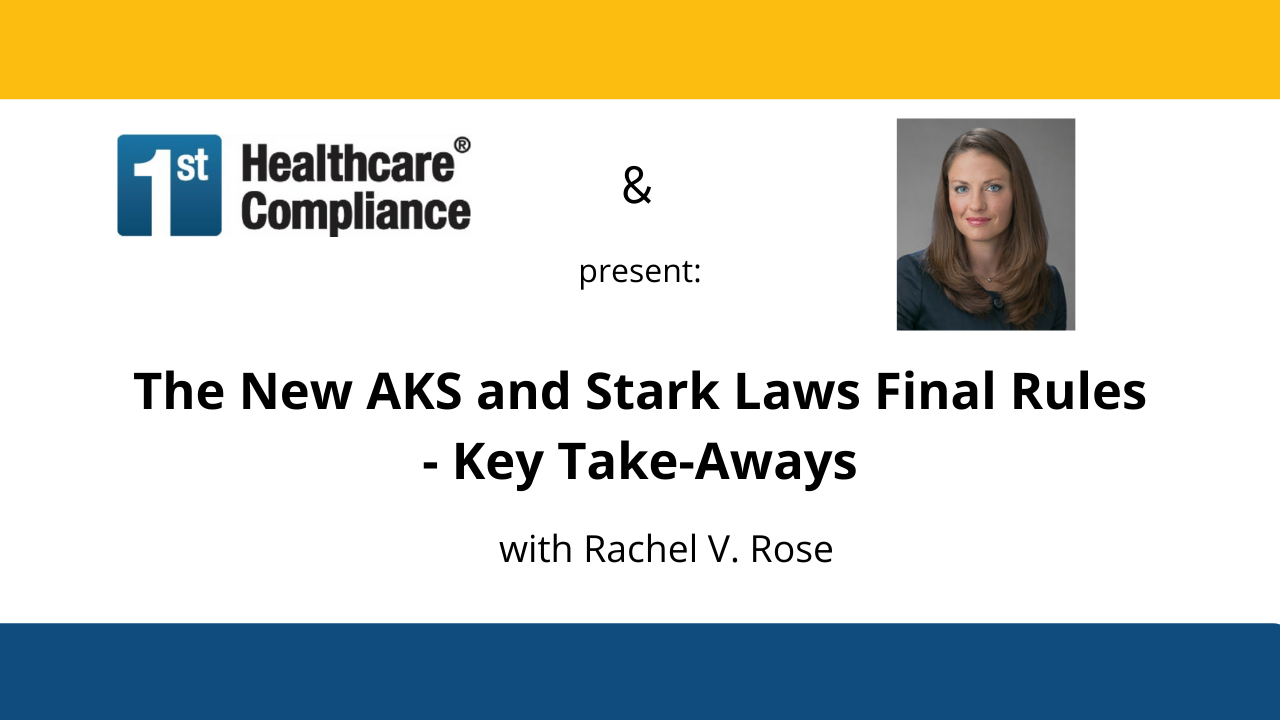
The New AKS and Stark Laws Final Rules – Key Take-Aways
https://youtu.be/2a__DROtXEQ
Rachel V. Rose, JD, MBA, principal…
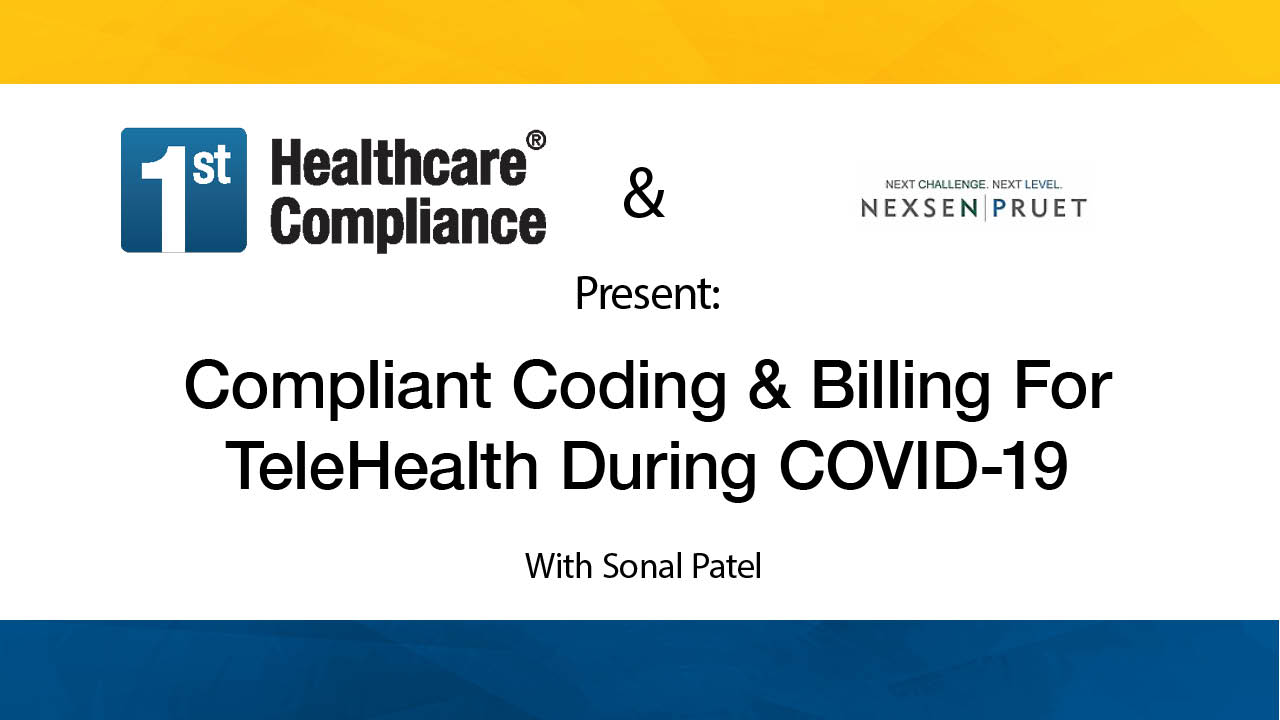
Compliant Coding & Billing For TeleHealth During COVID-19
https://youtu.be/OowzCJpXEKQ
Sonal Patel, Health Care Coder…
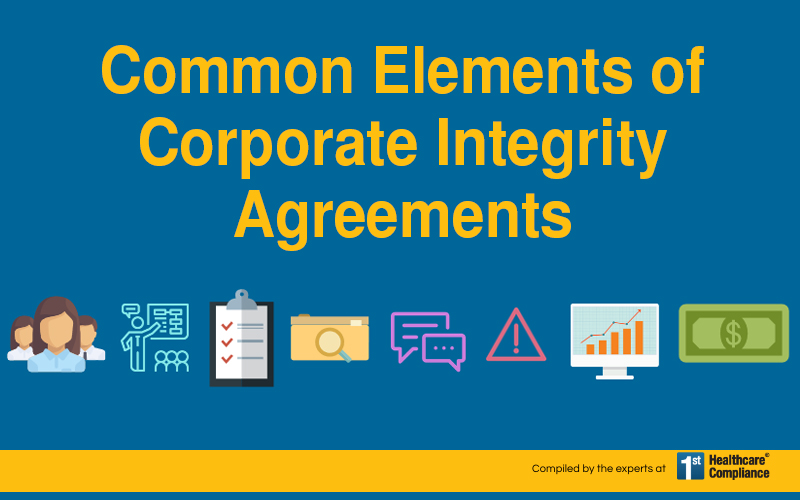
Common Elements of Corporate Integrity Agreements
A Corporate Integrity Agreement (CIA) is negotiated with a healthcare provider or entity. This type of agreement is part of a settlement of federal healthcare program investigations arising under false claims statutes. In exchange for the agreement, the OIG agrees not to exclude the provider or entity from participation in the federal healthcare programs. Implementation and oversight of CIAs require significant personnel and financial resources.
All types of organizations and providers may be impacted including pharmaceutical companies, medical device companies, hospitals, nursing homes and long term care facilities, and medical practices. Check out our infographic to become familiar with some of the common elements found in these agreements.
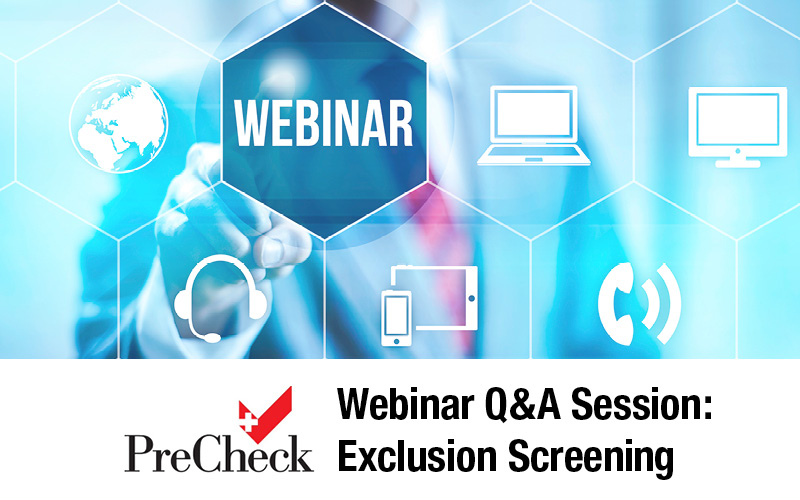
Webinar Q&A Session: Exclusion Screening
First Healthcare Compliance hosted an informative webinar with…
